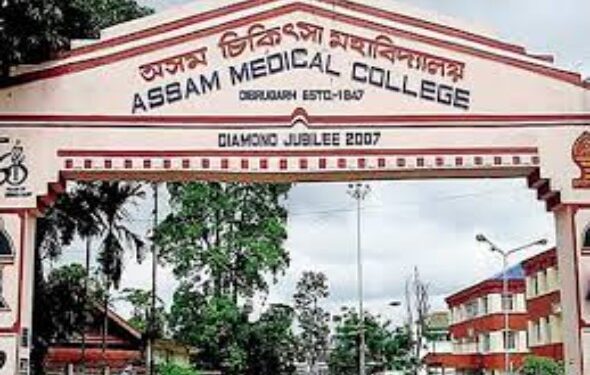The Union Ministry of Health and Family Welfare has designated Assam Medical College & Hospital (AMCH), Dibrugarh as a Centre of Excellence (CoE) for rare diseases under the National Policy for Rare Diseases (NPRD), 2021.
The inclusion, effective from August 26, was notified through an office memorandum, making AMCH the first medical institution in Assam to join the network of premier government tertiary hospitals tasked with rare disease diagnosis, prevention, and treatment.
Established in 1947, AMCH is one of the oldest medical institutes in Northeast India. Since its inception, it has produced more than 7,500 graduates, with its outpatient department recording an average daily attendance of 1,800 patients.
Under the NPRD, the government provides financial assistance of up to ₹50 lakh per patient for treatment of 63 identified rare diseases through the CoEs. With AMCH’s inclusion, the list now comprises institutions such as AIIMS (New Delhi, Jodhpur, Bhopal, and Patna), PGIMER Chandigarh, Sanjay Gandhi Post Graduate Institute Lucknow, King Edward Medical Hospital Mumbai, and others across major cities.
The Ministry noted that AMCH’s responsibilities as a CoE will be guided by the NPRD framework and further instructions from the central government. The designation will be reviewed after 12 months by a technical committee to assess compliance with standards such as awareness drives, record-keeping of prenatal diagnostic procedures, and establishment of renal and liver transplantation facilities for rare disease patients.
Earlier this year, the Regional Institute of Medical Sciences (RIMS), Imphal was also added to the list, subject to compliance with expert recommendations within a year.
According to the Health Ministry, around 1,000 patients are currently registered with CoEs nationwide. Budget allocations of ₹118.82 crore for FY 2024–25 and ₹299.59 crore for FY 2025–26 have been earmarked for rare disease initiatives.
Officials said AMCH’s inclusion is expected to improve access to critical treatment for patients in Assam and the wider Northeast, reducing the need for long-distance travel to metropolitan centres.





